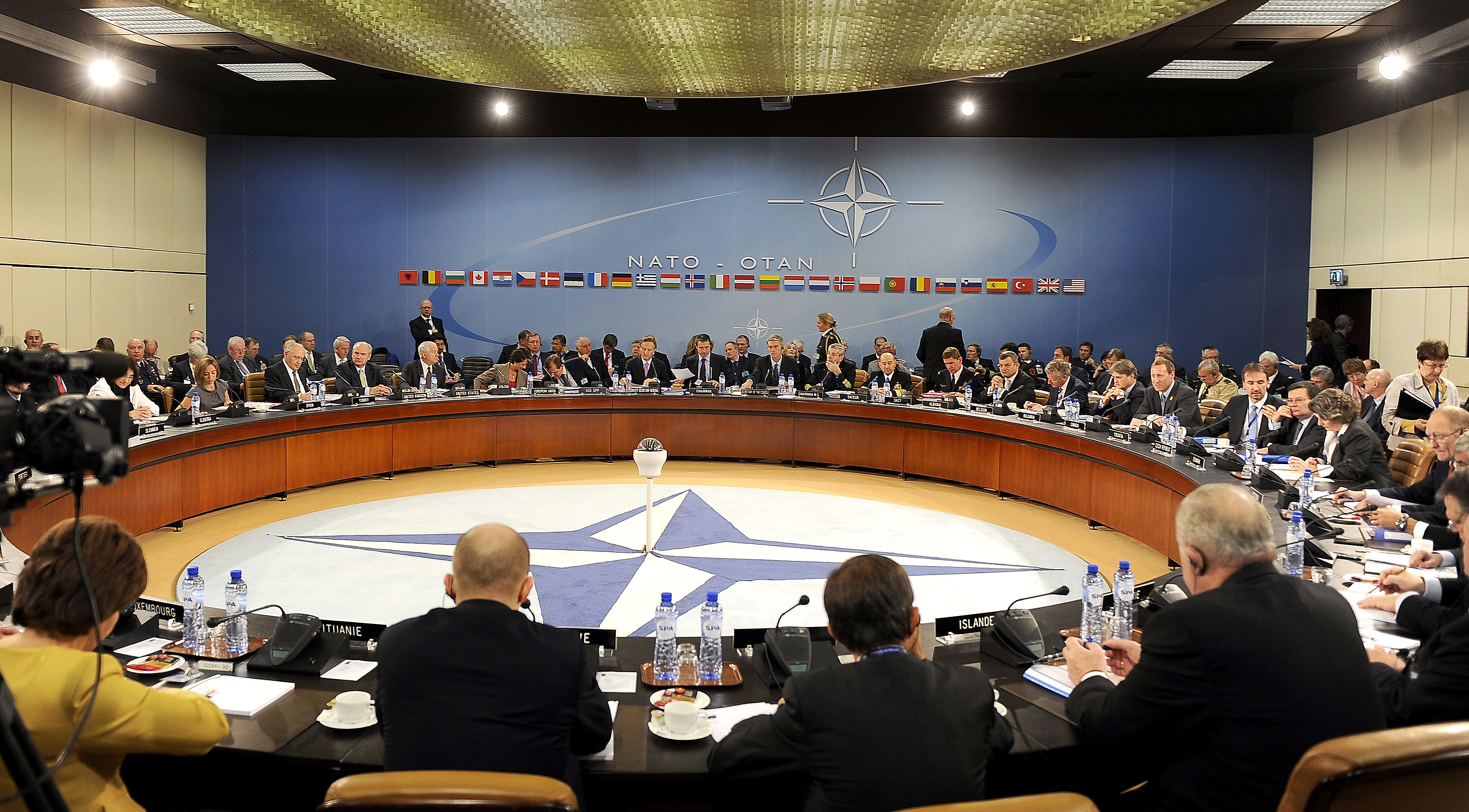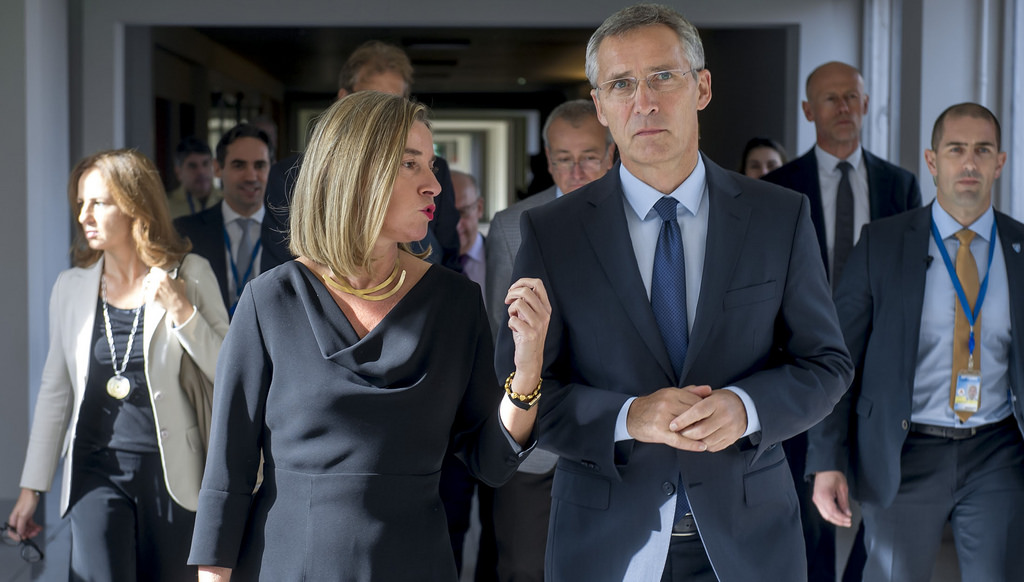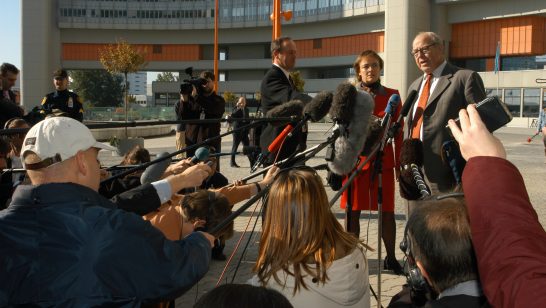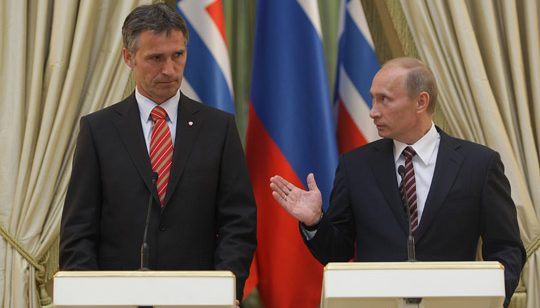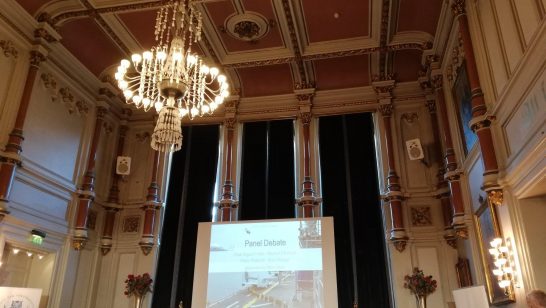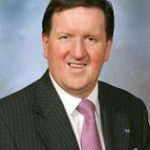
Another big anniversary for NATO. Another big opportunity for the critics and sceptics, be they in the White House, the Kremlin, or media, to take to the megaphones. Millions of words will be written and broadcast – occasionally they will be helpful. The rest will follow a jaundiced pattern typical of past anniversaries.
In 2003, Professor Sir Michael Howard at RUSI catalogued the books on his shelf with titles like NATO – the final crisis; NATO – The Impossible dilemma; NATO – The Troubled Partnership (Henry Kissinger, no less, in 1965), and many others. He said his favourite was The End of The Alliance written by Robert Steel in 1962.
Be ready then this year for more of the same. Yet the remarkable and durable Alliance that is NATO deserves much better; it remains a unique triumph of inter-state cooperation.
The first Secretary General of NATO was Lord Ismay. In his autobiography he recounts being strong-armed by Churchill (I know the feeling) to take on the infant Alliance. After a distinguished war service and settling into a comfortable and interesting Cabinet position, he was reluctantly persuaded to go to NATO HQ in Paris. But took to it, and tells of his feelings when he left after five years that: ‘We were utterly miserable. The Council had been like a large family, and the international staff had seemed like our children.’
He made points then as relevant today as they were in his (Bonn) farewell speech in 1959. He spoke of the defensive shield built up ‘which, not yet as strong as might be wished, is an essential feature of the deterrent to aggression. Who would have thought that sovereign States would entrust their precious armed forces to the command of nationals other than their own in times of peace? But this is what has come to pass.’
Even more prophetically he added: ‘And, if at times we find the burden heavy, let us remember that the North Atlantic Alliance is not only an obligation which sovereign States have undertaken of their own free will, but an insurance against the unspeakable horrors of a war which would destroy civilisation.’
As we contemplate a world wholly different from that of 1959, his words seem to echo what needs to be repeated as we commemorate NATO sixty years later. That unity still has to be ensured, that resolution has to be maintained, that capabilities have to be relevant and adequate, and that the sense of purpose has to be appropriate to the new and novel threats we face today.
In the last few days, the present occupant of the White House, NATO’s strongest ally, is reported to have questioned US membership of the Alliance. Worrying as that undoubtedly is, it may serve to remind other allies of both the value of NATO and their own responsibilities to ‘bear the burden’. Nothing underlines the importance of American leadership in the world better than the thought of losing it.
Burden sharing has long been a theme of American politicians, including the cheerleaders for the Alliance – and with good reason. But a complacency that America will always be there with its clout and resources has held back the investment required for Europe’s (and Canada’s) contribution to the common effort. Donald Trump has shattered that complacency and for that, if for nothing else, we should be grateful.
The uphill task of getting close, not just to the agreed figures but also to having the right capabilities and attitude, will not be easy. But if European populations are to be kept safe in an uncertain future, such investment is not an optional extra.
So, what is the checklist for NATO at 70?
The time has come to publish more than gross spending figures. These can often involve engineered attempts to meet the 2% agreed target. The composition has also become public concern as what effective value is 2% if it is made up of pensions and equipment for the last but one war?
Up to now, we have been reluctant to name and shame on the real military figures: It was claimed this might give our adversaries details they could exploit. However, in the era of mass surveyance and data collection, this is outdated reasoning. Publics have the right to know what is being spent, and to what end.
Secretary General Stoltenberg has highlighted the “three Cs” objective: ‘Cash, Capabilities and Contributions’. In other words, we need forces that can go far, go fast, hit hard, and stay long.
Much more emphasis has to be put on intelligence and cyber defences. Quantifying spending on this crucial arm of defence needs to be a priority. A cyber-attack on a nation or a city cannot be responded to with a Main Battle Tank – we have too many of the latter and too little of the former in our capabilities.
European contributions are starting to increase and the Wales Summit, by highlighting targets on readiness and equipment spending, has accelerated change. We need less talk now about ‘European Armies’ and ‘strategic autonomy’ – empty buzz-words meaning little, and much more of an emphasis on ending duplication and inefficiency in defence budgets. Fancy wiring diagrams that are not connected to modern capabilities are for show, not shooting.
NATO needs to reinforce its partnerships. So long as countries seek membership or a close relationship with all the facets of NATO, both military and civil, then they should be encouraged. Membership standards however must be maintained. Military compatibility and democratic credentials are fundamental. There should be no shortcut to membership of an elite organisation.
The Alliance will only matter in the future if it has the same cohesion and common purpose that was envisaged seventy years ago. Its vital deterrent value – against new adversaries and new non-military threats will only exist if all nations contribute equally and seriously. NATO is a powerful military organisation and Article 5 has the respect of any potential adversary.
Spending may still be short of ideal but it dwarfs all neighbours. That is why those who would challenge us look to the weak underbelly of our democracies. Splits can be exploited, open elections affected, public debate hijacked, and electronic communications subverted. It is essential therefore, that NATO’s defences have to be much more than military.
It is now eighteen years since I stood at the old NATO Headquarters and invoked Article 5 of the North Atlantic Treaty for the only time in the history of the Alliance. It was a signal to the enemies of our democratic assembly of free nations that we meant business. As NATO turns 70 the unity and determination of the 12th of September 2001 has to remain a rallying point and a reminder of what the Alliance needs to be in its next several decades.
The opinions articulated above also do not necessarily reflect the position of the European Leadership Network or any of its members. The ELN’s aim is to encourage debates that will help develop Europe’s capacity to address pressing foreign, defence, and security challenge.

